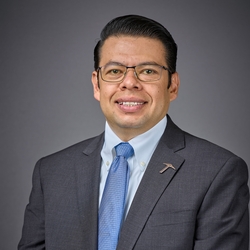U.S. Supreme Court Rules that Federal Employment Discrimination Laws Protect LGBT Employees
Contact Clara (C.B.) Burns, Charles C. High, Jr., Michael D. McQueen and Gilbert L. Sanchez -
June 15, 2020
In a 6-3 opinion the U.S. Supreme Court in Bostock v. Clayton County, Georgia holds an employer who fires an individual merely for being gay or transgender violates Title VII of the Civil Rights Act. Justice Gorsuch delivered the majority opinion for the Court with two dissenting opinions, one authored by Justice Alito, joined by Justice Thomas, and one authored by Justice Kavanaugh.
The Court considered two sets of cases in Bostock. The first concerned a pair of lawsuits from gay men who said they were fired because of their sexual orientation. The second involved a suit from a transgender who alleged her employer fired her when she announced that she would embrace her gender identity at work. In both cases, the employees argued that their terminations were unlawful in violation of Title VII’s prohibition against discrimination “because of sex.” The lower federal courts were split on the issue, and the Equal Employment Opportunity Commission originally sided with the employees but the current administration sided with the employers.
Title VII prohibits discrimination in the workplace on the basis of race, color, religion, sex, or national origin. The issue before the Court in Bostock was whether discrimination against an employee because of sexual orientation constitutes prohibited employment discrimination “because of…sex” within the meaning of Title VII. The majority found the answer to be clear: an employer who fires an individual for being gay or transgender fires that person for traits or actions it would not have questioned in a member of a different sex. The Court reasoned that gay and transgender status are inextricably bound up with sex because to discriminate on these grounds requires an employer to intentionally treat individual employees differently because of their sex.
Justice Alito disagreed with the majority because neither “sexual orientation” nor “gender identity” appear on the list of prohibited grounds protected by Title VII. In Justice Alito’s view, had Congress intended for sexual orientation or gender identity to be protected under Title VII it would have stated so. Along the same lines, in Justice Kavanaugh’s view only Congress can amend Title VII to include sexual orientation or gender identity within its protection.
Overall, the majority recognized Congress adopted broad language making it unlawful for an employer to rely on an employee’s sex when deciding to fire that employee. The Court therefore reasoned that it would not hesitate to recognize a necessary consequence of that legislative choice: an employer who fires an individual merely for being gay or transgender defies the law. Underlying its holding, the majority refused to overlook plain statutory commands of Title VII.
Importantly, this case involved Title VII—a federal law. Consequently, this ruling applies to all employers in every state so long as they have 15 or more employees. And because Texas’ state discrimination law (Chapter 21 of the Texas Labor Code) generally mirrors Title VII, claims brought under Texas state law would likely be decided the same way. If you have any questions about this new ruling and anti-discrimination policies following it, please feel free to contact Kemp Smith’s Labor and Employment Department at 915-533-4424.



















































